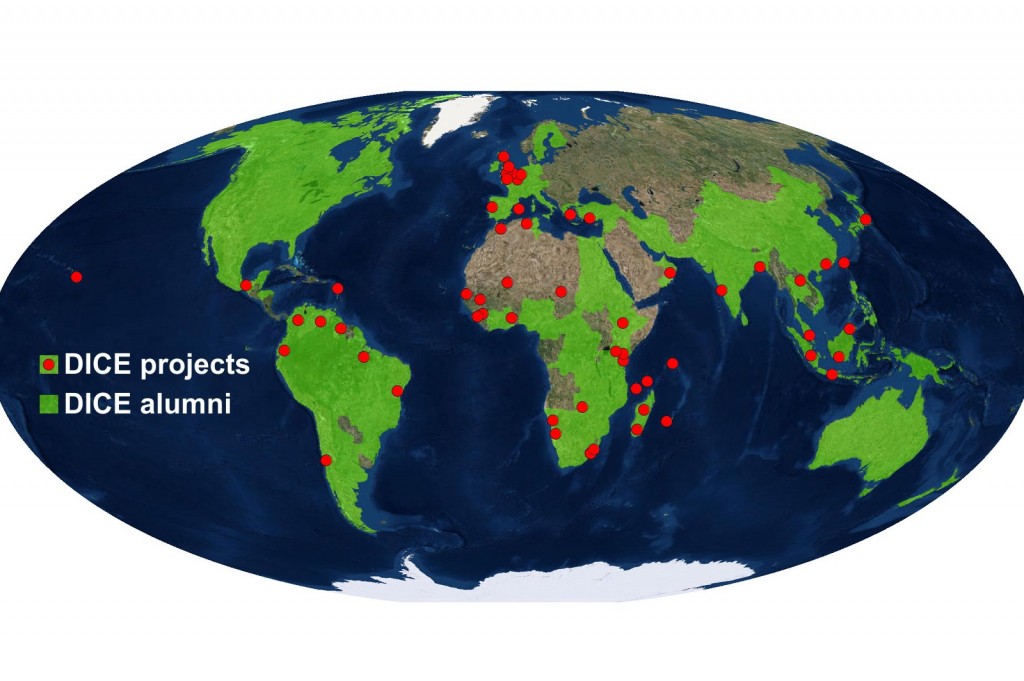
DICE alumni's work recognised by inclusion in the BBC’s first Wildlife Power List and a Whitley Fund for Nature Award 2015.
Dr Ian Singleton, a former PhD student at the University’s Durrell Institute of Conservation and Ecology (DICE) and current Director of the Sumatran Orangutan Conservation Programme (SOCP), has been named by the BBC as one of ‘Britain’s 50 most influential conservation heroes’.
Announced by BBC Wildlife Magazine on 11 May, the inaugural ‘Wildlife Power List’ seeks to recognise the people experts believe will have the biggest impact on wildlife in the next decade, ‘both in terms of practical conservation and the way we all see the natural world’.
Dr Singleton is an orangutan specialist who has been with the SOCP from its initial conception in 1999, and has overseen more than 220 confiscated illegal pet orangutans returned to the rainforests of Sumatra. He worked at the Durrell Wildlife Conservation Trust in Jersey before completing his PhD thesis on orangutan ecology and conservation at Kent in 2000.
One unexpected outcome of Dr Singleton’s research at Kent was the first real evidence for social organisation among wild orangutans. As well as the rehabilitation of illegal pet orangutans and their safe return to the wild, he is at the forefront of field research and monitoring of the remaining wild Sumatran orangutan population, and is involved with lobbying the Indonesian government on important conservation issues.
On 29 April, Dr Arnaud Desbiez, who completed his PhD in Biodiversity Management at DICE in 2007, received a Whitley Award for Conservation from HRH The Princess Royal during a ceremony at The Royal Geographical Society in London.
Dr Desbiez has been working in the Brazilian Pantanal since 2002. In 2010, he set up the Giant Armadillo Conservation Project in the Pantanal – the largest wetland in the world. This was the first long-term study of giant armadillos. At the time, little was known about this enigmatic species and few landowners even knew of its existence.
His initial research uncovered some surprising results. Radio-tracking giant armadillos enabled him to map habitat use, whilst camera traps have revealed crucial information about parental care, and show armadillo burrows providing refuge for over 25 species, demonstrating their role as an ‘ecosystem engineer’. Subsequently, a national outreach campaign was launched reaching 65,000 people directly, and the giant armadillo was selected by State authorities as an indicator species for the creation of protected areas in the State of Mato Grosso do Sul.
Launched in 1994, the Whitley Awards are now amongst the most high profile of conservation prizes. DICE has previously had two Award winners.
Based within the University’s School of Anthropology and Conservation, part of DICE’s mission is to build expertise in the conservation sector through research-led teaching and training. By the nature of this work, its alumni are its most valuable asset.
To date, DICE has trained more than 500 conservationists and continues to make a significant and vital impact in countries such as Brazil, India, Indonesia, Kenya and Madagascar.
It is the largest academic institute dedicated to conservation in the UK.